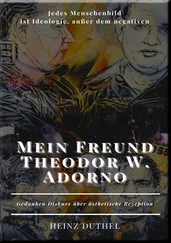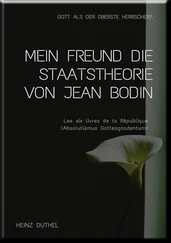The journey to where you already are
Heinz Duthel
Copyright © 2012 – 2018
Heinz Duthel
All rights reserved.
heinz-duthel.com - parapsychologie.club
Khun Ajarn Sri Po , Temple Sisirian Thailand
THE JOURNEY TO WHERE YOU ALREADY ARE
When a man has attained his own freedom, how can he be bound by any law? No law in this universe can bind him, for this universe itself is his. He is the whole universe. Either say he is the whole universe or say that to him there is no universe. How can he have then all these little ideas about sex and about country? How can he say, I am a man, I am a woman I am a child? Are they not lies? He knows that they are. How can he say that these are man’s rights, and these others are woman’s rights? Nobody has rights; nobody separately exists. There is neither man nor woman; the soul is sexless, eternally pure. It is a lie to say that I am a man or a woman, or to say that I belong to this country or that. All the world is my country, the whole universe is mine, because I have clothed myself with it as my body. Yet we see that there are people in this world who are ready to assert these doctrines, and at the same time do things which we should call filthy; and if we ask them why they do so, they tell us that it is our delusion and that they can do nothing wrong. What is the test by which they are to be judged? The test is here. Though evil and good are both conditioned manifestations of the soul, yet evil is the most external coating, and good is the nearer coating of the real man, the Self. And unless a man cuts through the layer of evil he cannot reach the layer of good, and unless he has passed through both the layers of good and evil he cannot reach the Self. He who reaches the Self, what remains attached to him? Now we will take up our x and y and show they are one. We have shown how what we call the external world is x + mind, and the internal world y + mind; x and y are both quantities unknown and unknowable. All difference is due to time, space, and causation. These are the constituent elements of the mind. No mentality is possible without them. You can never think without time, you can never imagine anything without space, and you can never have anything without causation. These are the forms of the mind. Take them away, and the mind itself does not exist. All difference is, therefore, due to the mind. According to Vedanta, it is the mind, its forms, that have limited x and y apparently and made them appear as external and internal worlds. But x and y, being both beyond the mind, are without difference and hence one. We cannot attribute any quality to them, because qualities are born of the mind. That which is qualityless must be one; x is without qualities, it only takes qualities of the mind; so does y; therefore these x and y are one. The whole universe is one. There is only one Self in the universe, only One Existence, and that One Existence, when it passes through the forms of time, space, and causation, is called by different names, Buddhi, fine matter, gross matter, all mental and physical forms. Everything in the universe is that One, appearing in various forms.
All the powers in the universe are already ours. It is we who have put our hands before our eyes and cry that it is dark. Know that there is no darkness around us. Take the hands away and there is the light which was from the beginning. Darkness never existed, weakness never existed. We who are fools cry that we are weak; we who are fools cry that we are impure. Thus Vedanta not only insists that the ideal is practical, but that it has been so all the time; and this Ideal, this Reality, is our own nature. Everything else that you see is false, untrue. As soon as you say, “I am a little mortal being,” you are saying something which is not true, you are giving the lie to yourselves, you are hypnotising yourselves into something vile and weak and wretched.
A child comes into the world crawling and without teeth, and the old man gets out without teeth and crawling. The extremes are alike, but the one has no experience of the life before him, while the other has gone through it all. When the vibrations of ether are very low, we do not see light, it is darkness; when very high, the result is also darkness. The extremes generally appear to be the same, though one is as distant from the other as the poles. The wall has no desires, so neither has the perfect man. But the wall is not sentient enough to desire, while for the perfect man there is nothing to desire. There are idiots who have no desires in this world, because their brain is imperfect. At the same time, the highest state is when we have no desires, but the two are opposite poles of the same existence. One is near the animal, and the other near to God. Here we stand, and our eyes look forward sometimes miles ahead. Man has been doing that since he began to think. He is always looking forward, looking ahead. He wants to know where he goes even after the dissolution of his body. Various theories have been propounded, system after system has been brought forward to suggest explanations. Some have been rejected, while others have been accepted, and thus it will go on, so long as man is here, so long as man thinks. There is some truth in each of these systems. There is a good deal of what is not truth in all of them. I shall try to place before you the sum and substance, the result, of the inquiries in this line that have been made in India. I shall try to harmonise the various thoughts on the subject, as they have come up from time to time among Indian philosophers. I shall try to harmonise the psychologists and the metaphysicians, and, if possible, I shall harmonise them with modern scientific thinkers also. The one theme of the Vedanta philosophy is the search after unity. The Hindu mind does not care for the particular; it is always after the general, nay, the universal. “What is that, by knowing which everything else is to be known?” That is the one theme. “As through the knowledge of one lump of clay all that is of clay is known, so, what is that, by knowing which this whole universe itself will be known?” That is the one
search. The whole of this universe, according to the Hindu philosophers, can be resolved into one material, which they call Âkâsha. Everything that we see around us, feel, touch, taste, is simply a differentiated manifestation of this Akasha. It is all-pervading, fine. All that we call solids, liquids, or gases, figures, forms, or bodies, the earth, sun, moon, and stars — everything is composed of this Akasha. What force is it which acts upon this Akasha and manufactures this universe out of it? Along with Akasha exists universal power; all that is power in the universe, manifesting as force or attraction — nay, even as thought — is but a different manifestation of that one power which the Hindus call Prâna. This Prana, acting on Akasha, is creating the whole of this universe. In the beginning of a cycle, this Prana, as it were, sleeps in the infinite ocean of Akasha. It existed motionless in the beginning. Then arises motion in this ocean of Akasha by the action of this Prana, and as this Prana begins to move, to vibrate, out of this ocean come the various celestial systems, suns, moons, stars, earth, human beings, animals, plants, and the manifestations of all the various forces and phenomena. Every manifestation of power, therefore, according to them, is this Prana. Every material manifestation is Akasha. When this cycle will end, all that we call solid will melt away into the next form, the next finer or the liquid form; that will melt into the gaseous, and that into finer and more uniform heat vibrations, and all will melt back into the original Akasha, and what we now call attraction, repulsion, and motion, will slowly resolve into the original Prana. Then this Prana is said to sleep for a period, again to emerge and to throw out all those forms; and when this period will end, the whole thing will subside again. Thus this process of creation is going down, and coming up, oscillating backwards and forwards. In the language of modern science, it is becoming static during one period, and during another period it is becoming dynamic. At one time it becomes potential, and at the next period it becomes active. This alteration has gone on through eternity.
Читать дальше












